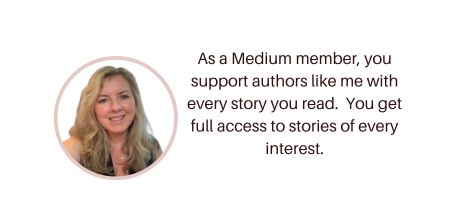Understanding the Distinction: Empaths vs. Co-Dependents
Written on
Chapter 1: Are Empaths and Co-Dependents the Same?
Many individuals, myself included, often confuse empaths with co-dependents. It wasn't until I delved into Judith Orloff’s insightful book, Thriving as an Empath, that I discerned the differences between the two—and discovered that I embody both traits.
An empath is defined as someone who absorbs the emotions and energy of others. For instance, when an empath enters a room where a couple has just quarreled, they can sense the underlying tension. This ability allows them to intuit feelings of frustration and anger, leading to a sudden emotional shift within themselves—often before they even realize it. Those who are aware of their empathic nature may employ techniques to shield themselves from such energies, utilizing methods like grounding techniques, essential oils, or visualization exercises.
In contrast, co-dependents often feel compelled to intervene in the lives of others to prevent negative outcomes. Using the previous example of the arguing couple, a co-dependent individual might feel the need to join the discussion, offer advice, or attempt to diffuse the situation. This behavior often stems from a background in dysfunctional families, where such dynamics were modeled by caregivers.
It's crucial to note that one can exhibit both empathic and co-dependent traits. A co-dependent person does not automatically absorb emotions unless they are also an empath. Conversely, empaths do not inherently believe they must intervene to avert crises. When both characteristics are present, the individual not only feels others' emotions but also feels a responsibility to intervene.
Key Differences Between Empaths and Co-Dependents
- Emotion Absorption: Empaths absorb the feelings and energy of others, while co-dependents may not.
- Intervention Need: Co-dependents often feel compelled to give advice and intervene, fearing negative outcomes, whereas empaths desire to help but do not take on the responsibility for results.
- Self-Blame: Co-dependents tend to blame themselves for issues in their own lives and those of others, while empaths experience pain without self-recrimination.
- Personal Interests: Co-dependents might sacrifice their own hobbies and interests to please others, whereas empaths maintain their interests unless they are also co-dependent.
- Emotional Regulation: Co-dependents look externally for emotional comfort, while healthy empaths understand that healing comes from within and utilize various tools to support their well-being.
If you resonate with both empathic and co-dependent qualities, you are likely experiencing both. Personally, I have always felt the emotions and energies of those around me, often believing it was my duty to help others feel better. I used to think that my advice was essential and that failing to provide it could lead to someone making a significant mistake or enduring unnecessary suffering.
I would seek validation from those around me, allowing their moods to dictate my emotional state. If those nearby were joyful, I felt joy too; if they were upset, I felt compelled to "fix" the situation through people-pleasing.
While I still enjoy sharing knowledge (as a natural teacher), I’ve learned to do so only when invited or in platforms where people can choose to engage with my insights.
Over the years, I have actively worked on healing my co-dependent tendencies while nurturing my empathic abilities. I've developed a toolkit of strategies to support my emotional health, allowing me to assist others without feeling responsible for their outcomes. I recognize that individuals are on different paths in their healing journeys, and it’s not my role to take away their opportunities for growth. Sometimes, they may need additional lessons from life before they are prepared for my guidance.
So, which one resonates with you—empath, co-dependent, or both?
For more free and paid resources, visit here.

Chapter 2: Exploring the Differences Further
In this section, we delve deeper into understanding the nuances between being an empath and a co-dependent, providing clarity on how these traits manifest in daily life.
The first video, "The Difference Between Being an Empath & Being Codependent," explains the essential distinctions between these two traits and how they can coexist.
The second video, "Empath vs Codependent," offers further insights into the characteristics and behaviors associated with each trait.